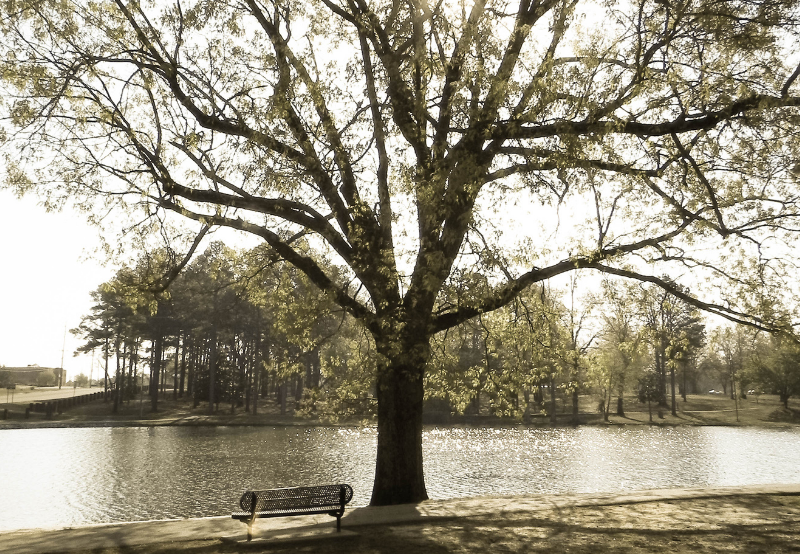I call this letter (and my podcast, and my membership site) The Habit because, to quote Flannery O’Connor, “I’m a full-time believer in writing habits.” To continue quoting Milledgeville’s favorite daughter,
You may be able to do without [habits] if you have genius, but most of us have talent, and this is simply something that has to be assisted all the time by physical and mental habits or it dries up and blows away.
Another word for this kind of habit is liturgy. Liturgy works on the principle that our outward actions shape our inward states.
Last week the online edition of The Atlantic ran an interview with a couple of friends of mine that illustrates the incredible power of liturgy/habit. Andy Gullahorn and Gabe Scott have been friends for a long time. Both musicians, they’ve been playing Andrew Peterson’s Behold the Lamb Christmas tour together for as long as there has been a tour, since 2000. But they didn’t do a good job of keeping up with one another the rest of the year, in spite of the fact that they both lived in Nashville, a couple of miles apart.
So in 2014 they cooked up a plan: once a week they would give each other a high-five. At a mutual signal (delivered by text), Andy would leave walking from his house, Gabe would leave walking from his house, and they would meet at a park equidistant from the two houses and give each other a high-five. Sometimes they play basketball. Sometimes they talk. Sometimes they just turn around and go home. There are different protocols and procedures for the high-five depending on the situation. Gabe and Andy introduced a clap and a snap into the high-five to distinguish it from other high-fives. Andy keeps a high-five journal, which is one of the most Andy Gullahorn things I’ve ever heard of. They’ve been doing the high-five every week, with very few exceptions, for more than six years.
But 2020 threw a major curve ball at the high-five. (Was it a curve ball? A monkey wrench? The correct mixed metaphor is escaping me.) Gabe fell ill with a kind of encephalitis that wreaked havoc on his memory. huge swaths of his memory were just gone. He forgot, for instance, that he was the owner of the highly successful and much-beloved Ladybird Taco, my new favorite breakfast place.
When Gabe was recovering in the hospital, Andy stayed with him one night to give Gabe’s wife a break. Here’s what they told the Atlantic interviewer about that visit.
Andy: I asked him if he knew anything about the high five, and he said, “No; what are you talking about?” So I told him the basic story.
The next morning he got up to use the restroom. At that point, his short-term memory was really, really bad, so he wouldn’t have remembered the conversation the night before. I said, “Okay, Gabe, this probably isn’t going to make any sense, but on your way back from the bathroom, I’m going to walk toward you. I need you to give me a high five.” He was like, “Okay.” …
I started walking toward him, and then right before the high five, he did the clap, and the snap, and I just started crying. I said, “I can’t believe you just did that.” He was like, “Can’t believe I just did what?” It just blew my mind. I didn’t expect him to remember anything about it.
Gabe: That’s one of the things I love about the routine of it. Not just the mechanics of it, but the friendship part of it is so burned into my body memory that that’s what came out.
Gabe’s body remembered what his brain couldn’t remember. That’s the power of habit, of liturgy.
Gabe went on to tell the interviewer,
Typically, when I think about routine, it means something that comes automatically. And the high five is routine in that we do it every week; we know it’s coming. But the joy and the reward that comes out of it—that’s not routine. Even after six years of doing this, every time I see my wonderful buddy walking down the side of the road toward me, that’s special. We’re dedicated to each other, and we’re showing each other in a way other than just calling and saying, “Hey, I love you.” We’re actually doing something, and that hasn’t gotten old.
Isn’t that great? We aren’t just brains on a stick. We are embodied creatures, and the things we do with our bodies shape our inward realities.
You really need to read that whole Atlantic.com article for yourself. It’s fantastic. You’ll laugh. You’ll cry. You’ll think about your own habits and liturgies of friendship.








